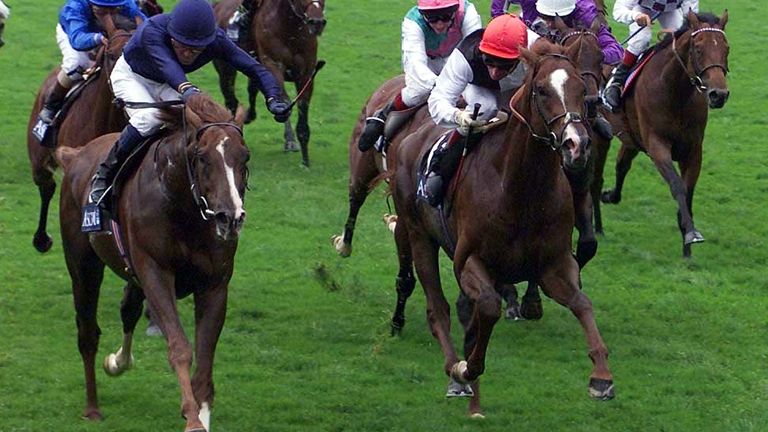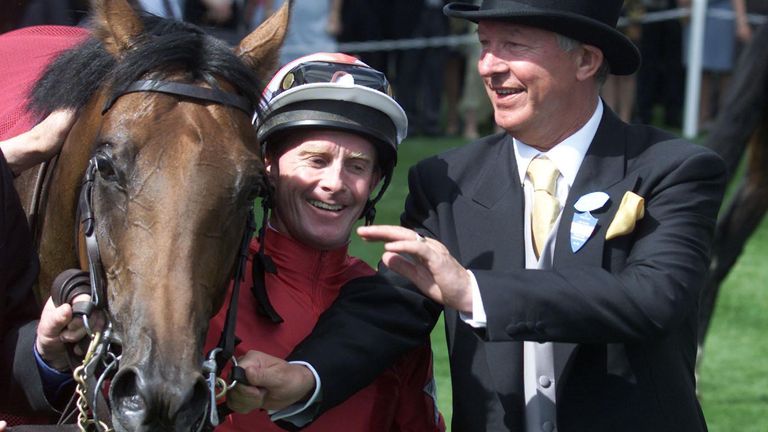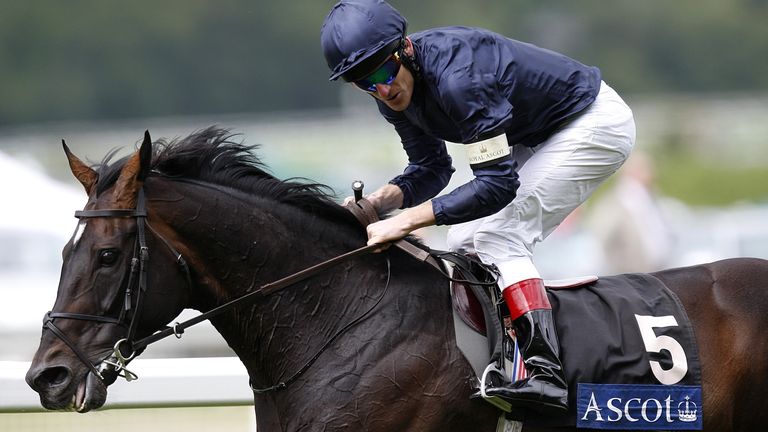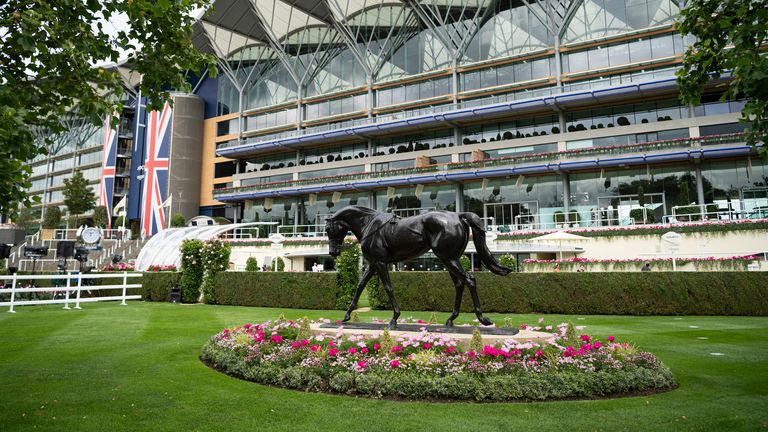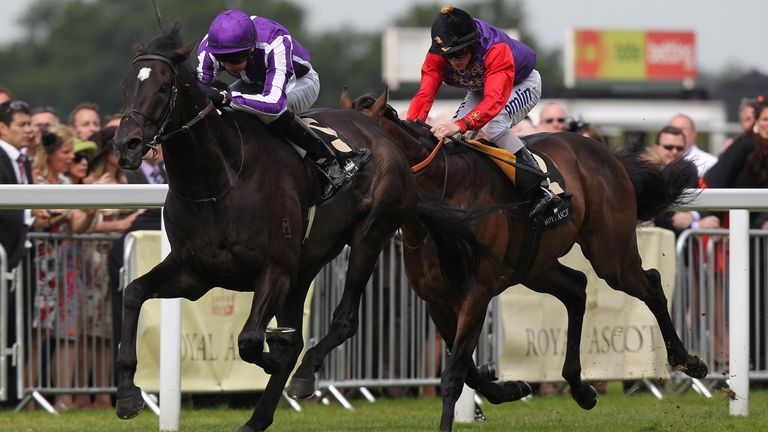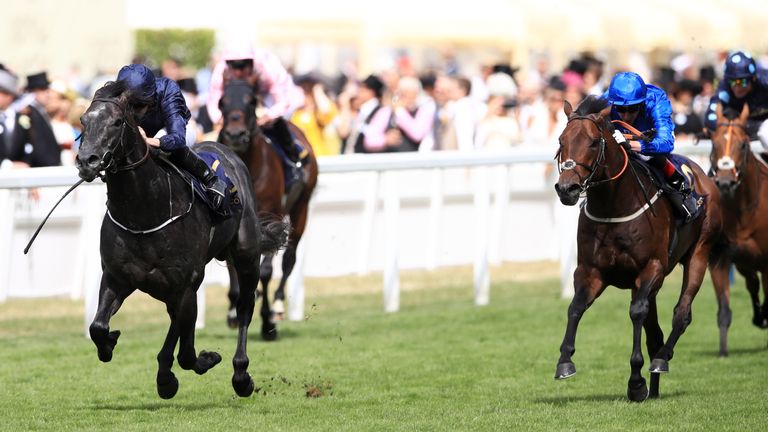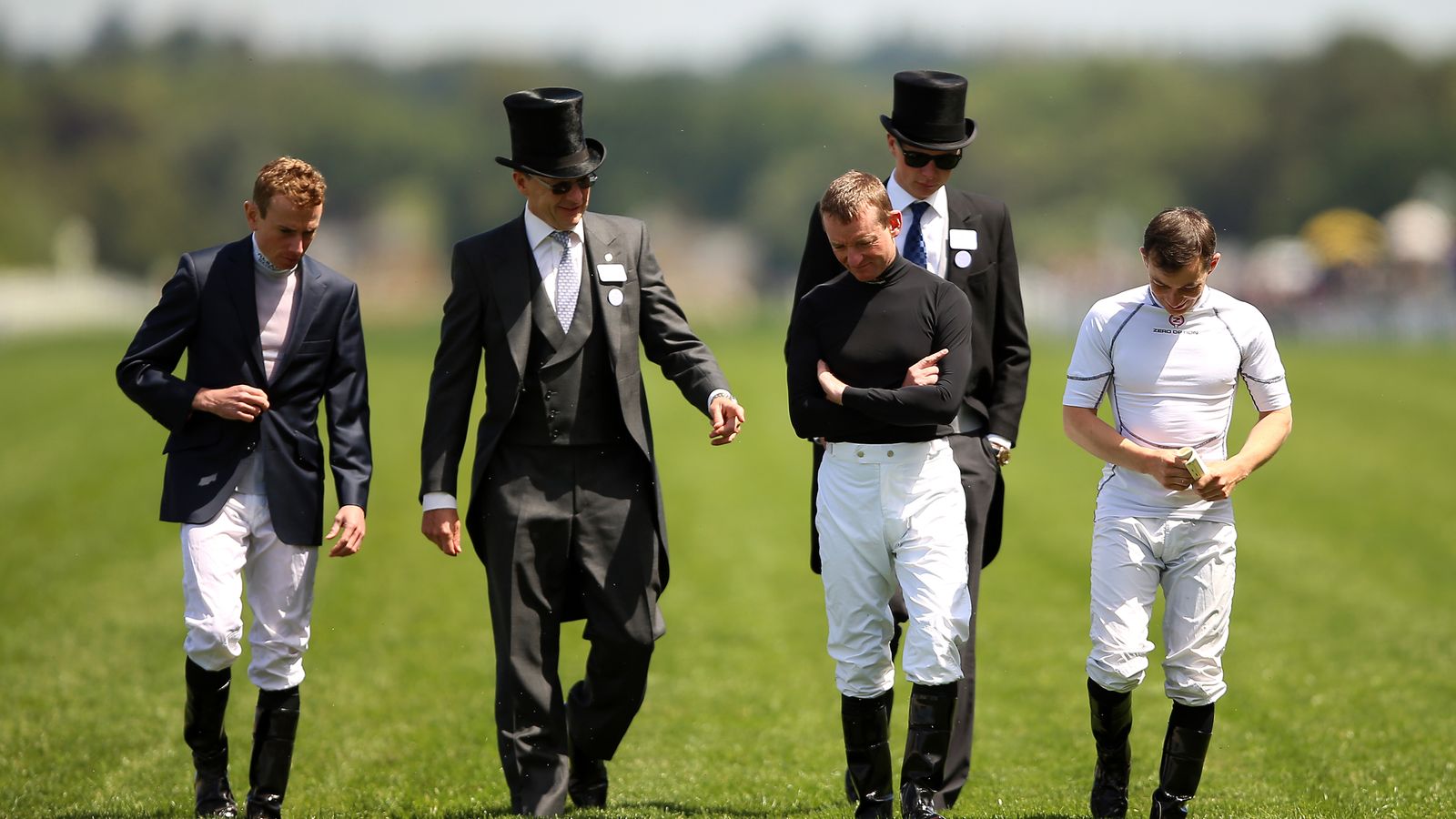
With Aidan O’Brien now one away from Sir Michael Stoute’s Royal Ascot record of 82 winners, we take a look at some of the Ballydoyle handler’s best winners.
Giant’s Causeway – St James’s Palace Stakes (2000)
On the back of two gallant second-placed efforts in both the English and Irish 2000 Guineas, Giant’s Causeway would give Aiden O’Brien his first Group One winner at Royal Ascot.
Sent off the 7/2 favourite in the hands of Mick Kinane, he was always up with the pace and was sent for home rounding Swinley Bottom and showed his battling quality by lasting home to win by a head.
This would be the start of a magical summer for him as he would then go on to take the Eclipse, Sussex Stakes, Juddmonte International and the Irish Champion Stakes.
Labelled the iron horse, he was retired to stud at the end of that season after a narrow defeat in the Breeders’ Cup Classic and sired multiple champions including Shamardal, Footstepsinthesand and Ascot Gold Cup winner Rite Of Passage.
Johannesburg – Norfolk Stakes (2001)
The Cartier two-year-old Champion European Colt, Johannesburg showed the world his electric turn of foot and put the race to bed within a matter of strides.
On just his second start, he was restrained early by Mick Kinane until letting the handbrake off and coasted to a smooth success in ultimate style.
He would then go on to record four Group One successes that season ranging from six to 10 furlongs culminating in the Breeders’ Cup Juvenile.
Johannesburg would only run three more times the following season including when beaten in the Kentucky Derby before going to stand at stud in the United States and later Japan.
Rock Of Gibraltar – St James’s Palace Stakes (2002)
Running in the colours of Sir Alex Ferguson, Rock Of Gibraltar was looking for revenge at the Royal meeting with stablemate Landseer, who beat him in the Coventry Stakes in 2001.
Off the back of success in the English and Irish 2000 Guineas, he was looking for his third Group One within six weeks and was sent off a red hot 4/6 favourite.
Under only hands and heels riding, he hit the front with a furlong to go with his previous Ascot conqueror Landseer trailing in his wake.
Not many horses would have been able to perform at the highest level within a short space of time and that is testament to the training skills of O’Brien.
Yeats – Gold Cup (2009)
A place in history would await Yeats as he was bidding to become the first horse to win four Ascot Gold Cups.
Geordieland was looking to turn the tables after filling the runner-up spot for the two previous years and was aiming to spoil the fairytale.
Johnny Murtagh drove Yeats to put his head into the lead with half a mile to run but it was Patkai and Ryan Moore who started closing in the final furlong.
The post came in time though and Yeats had rewritten the history books. He went on to become a successful National Hunt Stallion and sired 2022 Grand National winner Noble Yeats.
So You Think – Prince Of Wales’s Stakes (2012)
A five-time Group One winner in Australia, So You Think was bought by Coolmore after finishing third in the 2010 Melbourne Cup.
On the back of winning the Tattersalls Gold Cup for the second time, he went off a very well fancied 4/5 favourite to record his first victory at Royal Ascot.
Having travelled smoothly into the race, Carlton House loomed up as a danger but it was So You Think’s turn to spoil the party by denying Her Majesty The Queen a Royal winner.
This would be the last time the Australian champion was seen on a racecourse but his amazing international record would never be forgotten.
Caravaggio – Commonwealth Cup (2017)
Having won at the meeting when winning the Coventry Stakes the year prior, it was no surprise to see Caravaggio go off at 5/6 for dual Ascot victory.
A strong Godolphin challenge in the shape of Mill Reef winner Harry Angel & Gimcrack victor Blue Point weren’t going to make things easy.
Following Adam Kirby’s every move on Harry Angel, Ryan Moore asked for maximum effort from Caravaggio inside the final furlong before getting the better of the Godolphin duo.
It was a race for the ages as Harry Angel went onto become a dual Group One winner, whilst Blue Point completed the rare double by winning the King’s Stand and the Diamond Jubilee in the same week two years later.

